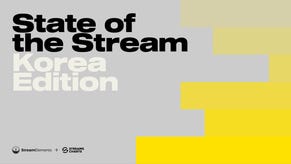Traditional games are the real bait-and-switch - Cousins
Scattered Entertainment GM says critics of free-to-play ethics driven by fear and snobbery
The free-to-play business model has become increasingly popular in recent years, but it has no shortage of detractors in the industry. In an editorial posted on Polygon today, one of free-to-play's most vocal supporters, Scattered Entertainment general manager Ben Cousins, likened the attacks on free-to-play to past moral panics over pinball, rock n' roll, or the telephone. And just as those uproars seem silly in retrospect, so too will the accusations against free-to-play games be laughed at in the future, Cousins said.
"The attacks and criticism of free-to-play mechanics are often unfair and selective, and leave questionable but traditional business practices alone," Cousins said. "This is snobbery, evidence that the old guard is scared of where the industry is headed."
One accusation Cousins singled out was that free-to-play games participate in bait-and-switch tactics by offering a download for free but putting paywalls in players' way once they're into the game. However, Cousins said the traditional games industry, where people pay $60 up front and have no ability to get refunds, is the bigger bait-and-switch.
"Publishers often ask the press to hold reviews until the game has been released; the publisher is often trying to sell the game before poor reviews hit," Cousins noted. "Publishers routinely offer exclusive in-game content for digital pre-orders. Digital copies won't sell out, but the push remains to lock in consumer money before independent reviews hit. Get the player invested and spending before the game is released with the promise of 'rare' or 'exclusive' items."
Kickstarter games are even worse, he said, as developers could deliver something that isn't what they promised, or nothing at all. By comparison, at least free-to-play gamers have tried the game before they decide whether to spend money on it.
"When something is new, when it isn't aimed at you, when it is created by strange people in strange places, when it breaks established norms and when it is becoming hugely popular... it's scary for the establishment," Cousins said. "The ethical critique is an easy way to fight these changes, a call to protect the children or protect the irrational people who obviously can't like these games on their own merits. We begin to sound as reactionary as the ban on pinball or the fears over jazz music corrupting the minds of our youth."









